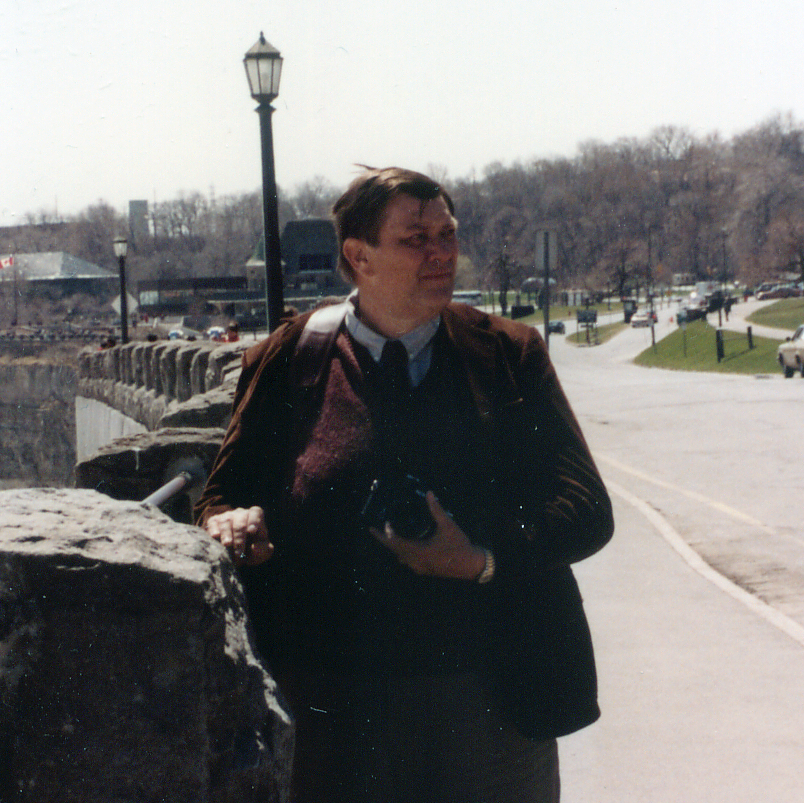For me, this has definitely been a record year for losses of loved ones, which, of course, all of us go through at various times in our lives. Most recently, I received word that less than a week after I last saw him, my very dear long-time friend Gerald Bremseth unexpectedly passed away. And so I decided the best thing I could do was to pay tribute to this truly remarkable man by sharing a bit about him with my readers.
I first met Gerald in 1982 when I moved to Oklahoma City to work as an engineer for Altec Lansing, a manufacturer of high-end industrial/professional audio equipment. This was not, I hasten to say, the Altec now known to most of the public as a supplier of inexpensive computer loudspeakers; this was the Altec who was a pioneer in the fields of sound reproduction and acoustics, and manufactured massive loudspeaker systems found in every major recording studio, and in movie theaters, churches, and large sound-system installations, all over the world. But it’s also the company, through its University Sound division, that made many less-publicly-visible products: ceiling loudspeakers for schools, hospitals, and airports; outdoor loudspeakers for ball fields, race tracks, and amusement parks; and specialty loudspeakers for things like swimming pools, mines, and oil rigs.
As Chief Engineer, Gerald was responsible for the design and/or redesign of many of the company’s hundreds of products, and since I was hired to develop new production test methods for those products, we ended up spending a great deal of time together and becoming fast friends. For many months, evenings and weekends often consisted of intense work sessions as we designed and implemented computer-controlled test systems for several of our production lines. And as I shared meals and off-time with him and his family, I began to understand what an exceptional man he was. To give you some sense of the scope of his expertise: after leaving Altec, he worked on the design of what was later considered the most advanced production line in the world for AT&T’s brand-new line of personal computers – an accomplishment acknowledged by a visit from President Reagan; he then moved to Colorado, where he initially helped develop an automated switching system for power companies to monitor and respond to changing power requirements, and later wrote the software for a National Weather Service raincloud-study project to acquire and measure ice crystals in clouds at jet airplane speeds. Not bad for a guy with a degree in chemical engineering, right? But he was also an award-winning photographer, and was extremely well-versed in physics, mechanics, and optics.
In spite of all of this, Gerald, like most engineers, remained largely unknown to the general public even though his efforts touched (and still touch) the lives of many hundreds of thousands of people. Nevertheless, there was one area of his life where his expertise was acknowledged at the very highest levels: Gerald was a competitive rifle shooter, and won many, many awards for his exceptional skill in shooting. In fact, he won the Individual Rifle Match at the Camp Perry National Matches in 1958, for which he received the Medal of Honor – the highest award issued by the U.S. Congress, and the only non-combat circumstance for which it’s given. Winning this, by the way, requires an amazing bit of shooting – at its extreme, hitting a plate-sized target at 600 yards! And yet, as fate would have it, his college newspaper reported the event but misspelled his name, giving credit to “George Brumworth” instead. Regardless, he was very proud of his shooting accomplishments, and could talk at great length about the design and use of all types of firearms.
We remained close friends until the very end, and continued to work together on a number of projects for various companies around the country – some extremely serious, and some pretty far-out. There was the automatic fish counter. The golf swing analyzer. The underwater whale teaching system. The cardiac monitor. And many, many more. Each of us relied on the other as both a sounding board for ideas, and as a source of information the other didn’t possess. In that respect I had the advantage, as I’m sure I learned far more from him than he from me.
And, finally, Gerald had a great sense of humor, and we spent a lot of time laughing together. He was always very proud of his Norwegian heritage, and often talked of wanting to visit the little town in Norway where his father’s family had come from. In fact, he had a favorite silly little poem he used to frequently recite, and so I’ll close this tribute with it –
Ten thousand Swedes,
Ran through the weeds,
Chased by one Norwegian.
You truly chased a lot of dreams for success in your life, Gerald, and certainly caught far more of them than most do. Thank you for allowing me to be a part of that, and chase many of them beside you – a debt which I cannot repay.
So chase on, my dear friend.
Chase on…
